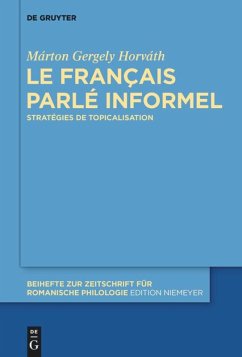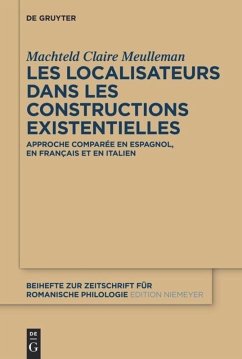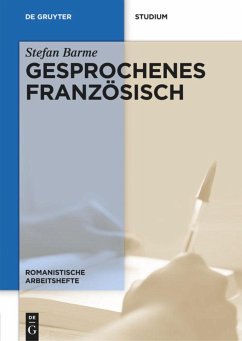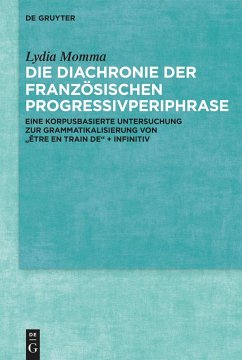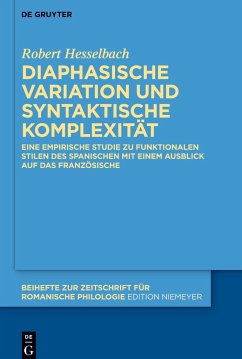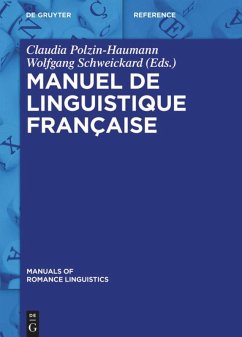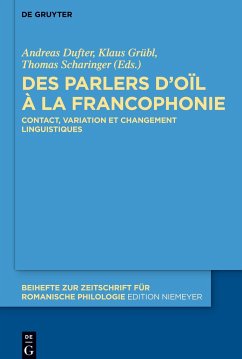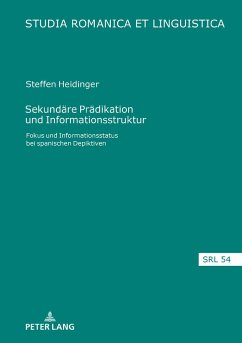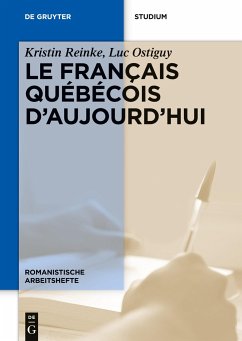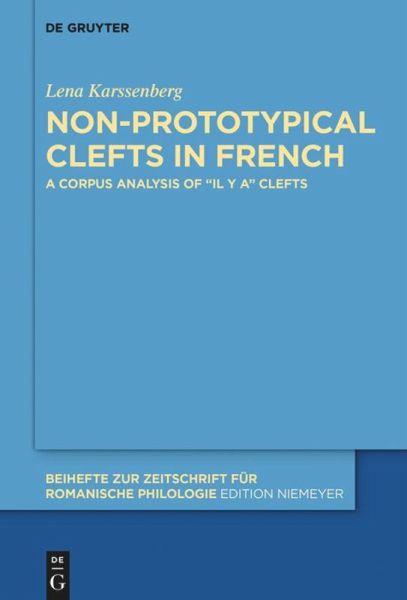
Non-prototypical Clefts in French
A Corpus Analysis of "il y a" Clefts
Versandkostenfrei!
Versandfertig in 6-10 Tagen
102,99 €
inkl. MwSt.
Weitere Ausgaben:

PAYBACK Punkte
51 °P sammeln!
This monograph is the first large-scale corpus analysis of French il y a clefts. While most research on clefts focusses on the English 'prototypical' it-cleft and its equivalents across languages, this study examines the lesser-known il y a clefts - of both presentational-eventive and specificational type - and provides an in-depth analysis of their syntactic, semantic and discourse-functional properties.In addition to an extensive literature review and a comparison with Italian c'è clefts and with French c'est clefts, the strength of the study lies in the critical approach it develops to the...
This monograph is the first large-scale corpus analysis of French il y a clefts. While most research on clefts focusses on the English 'prototypical' it-cleft and its equivalents across languages, this study examines the lesser-known il y a clefts - of both presentational-eventive and specificational type - and provides an in-depth analysis of their syntactic, semantic and discourse-functional properties.
In addition to an extensive literature review and a comparison with Italian c'è clefts and with French c'est clefts, the strength of the study lies in the critical approach it develops to the common definition of clefts. Several commonly used criteria for clefts are applied to the corpus data, revealing that these criteria often lead to ambiguous results. The reasons for this ambiguity are explored, thus leading to a better understanding of what constitutes a cleft. In this sense, the analysis will be of interest to specialists of Romance and non-Romance clefts alike.
In addition to an extensive literature review and a comparison with Italian c'è clefts and with French c'est clefts, the strength of the study lies in the critical approach it develops to the common definition of clefts. Several commonly used criteria for clefts are applied to the corpus data, revealing that these criteria often lead to ambiguous results. The reasons for this ambiguity are explored, thus leading to a better understanding of what constitutes a cleft. In this sense, the analysis will be of interest to specialists of Romance and non-Romance clefts alike.




